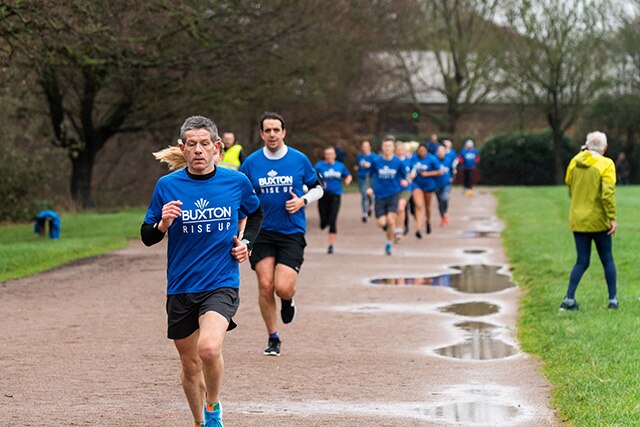What impact does physical activity have on your mental wellbeing? This is my journey
Research has shown that exercise can be good for our mental health, as it not only helps with our emotional well-being but has so many general health benefits as well as helping to reduce depression and anxiety.
I started to exercise to lose weight, get in better shape and run. I had a busy stressful job as a chef, working long hours and spending a lot of time on my feet. It wasn’t easy, especially in the beginning, as sometimes finding the energy to exercise was difficult, but I was determined to make it work. I had to create a new routine; eating healthily, staying hydrated, giving up alcohol and making sure I was sleeping well. Very soon I began to feel so much better.

Those were the physical benefits, but running also had some real mental positives; it gave me a feeling of freedom, some time for myself, it gave me a purpose for each day and lifted my mood and self-worth.
I found as soon as I started exercising regularly, I feel good seeing my progress in both fitness and weight-loss and was ready to set goals which gave me a real sense of purpose. I found that this is a key factor in continuing to exercise and maintaining motivation.
A strange thing happens when we find we have a purpose; we find ways to ensure that exercise fits into our busy schedules and, as a result, we often find we have increased energy levels. With a more positive outlook and being part of the fitness community, it’s also a great way of making new friends and socialising.
And the good news is that exercise doesn’t have to be strenuous. Exercise such as brisk walking, cycling, swimming or dance classes are enough to make a significant difference.
The most important and most difficult step is the first step. We can often ‘talk a good game’ but do nothing about it, often because it can be intimidating to start exercising if you haven’t done anything for a long time. But it’s just a matter of committing to something and taking it one step at a time. If you’re concerned, then see your GP for a health check before you start. There may be certain health or medication situations where you need to be guided by a health practitioner, but in any case, it’s important to be patient and start slowly so you don’t overdo it.
Pick an activity that you enjoy and can do easily, make sure it fits your current fitness level and experience, and consider how much time you have available to exercise and what feels realistic for you. Patience and consistency are key so that you enjoy it and stick with it.
Being active can be inexpensive and quite simple, but you need to have a plan and make exercise part of your weekly routine, even if it’s for just 20 minutes a day. Walking is an excellent example and often so underrated. Any amount of physical activity is better than none, just do the exercise you enjoy that gets your body moving.
Remember to start small, be patient and consistent and build up slowly and you’ll soon feel so much better, your mood will be raised, and you’ll feel more positive and enthusiastic with improved self-confidence and self-esteem.
What’s not to enjoy about that? So, get your shoes on and get outdoors!
Keith Anderson
Head Coach
Full Potential Coaching

What impact does physical activity have on your mental wellbeing?
Research has shown that exercise can be good for our mental health, as it not only helps with our emotional well-being but has so many general health benefits as well as helping to reduce depression and anxiety.
Take a look